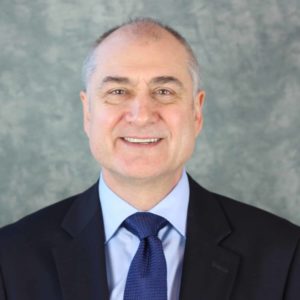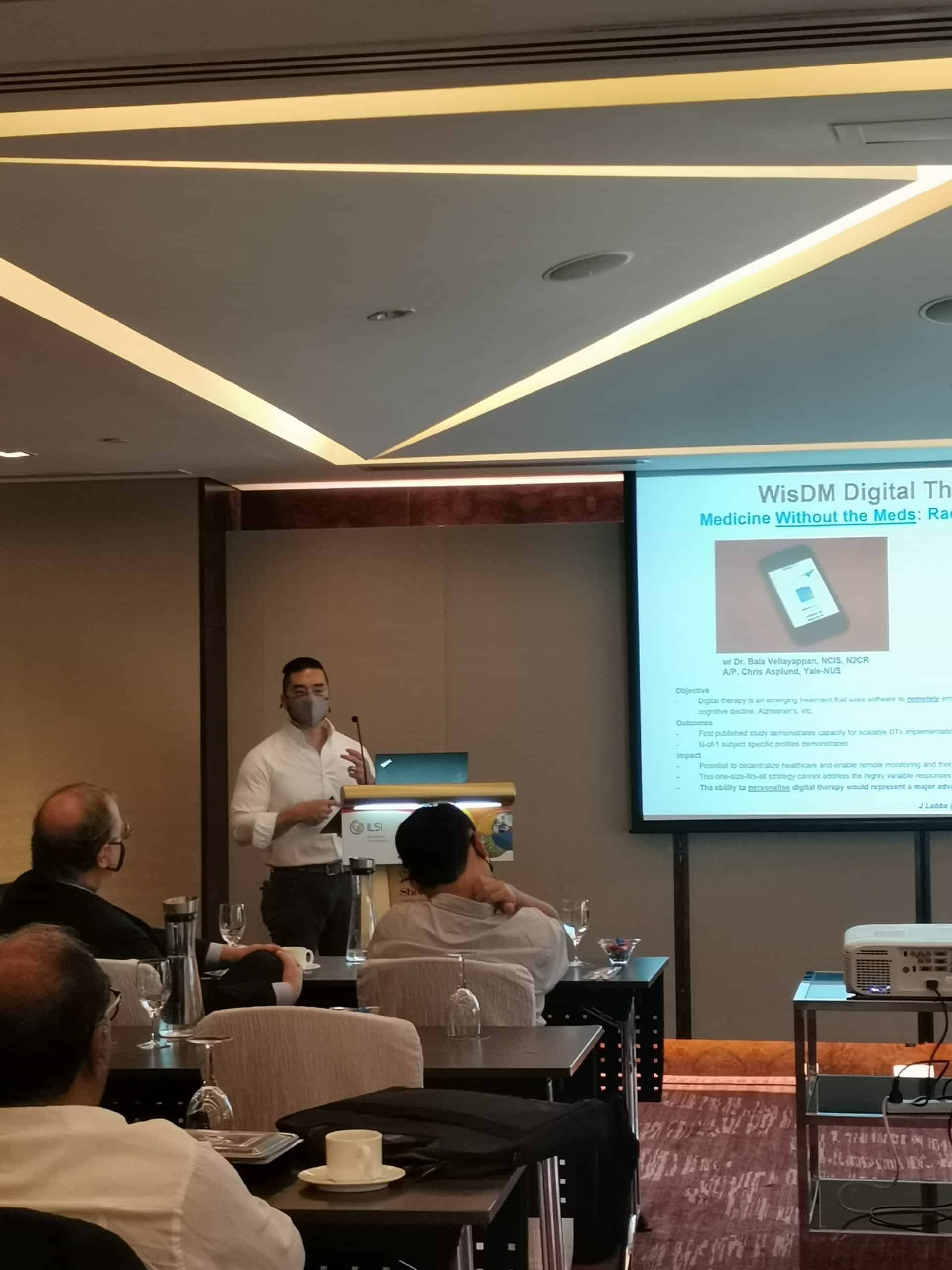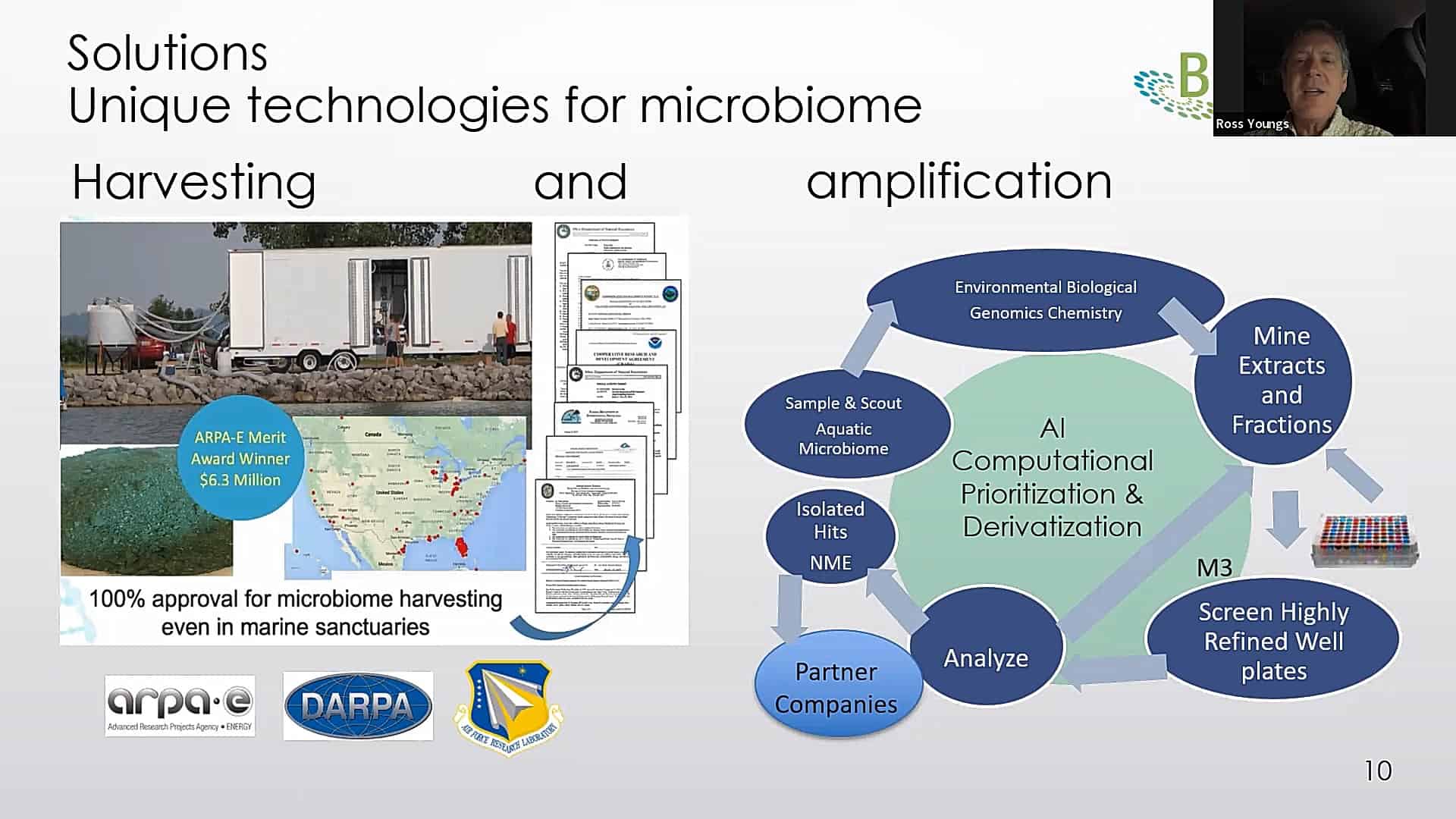
ILSI SEA Region 2022 Annual Meeting and Science Session
ILSI Southeast Region held its 2022 Annual Meeting on April 26th in Singapore. This yearly gathering provides a platform for Members, Board of Directors, Science Advisors, and entity Staff to meet, exchange updates, and strengthen partnerships. This year’s meeting was held in a hybrid format, with participants attending in-person at the Sheraton Towers Singapore, and virtually. With improvements in the pandemic situation in most parts of the world and the gradual easing of social and travel restrictions, the entity was happy to welcome guests and attendees who were able to travel to Singapore or attend online despite busy schedules and time differences.
The Year in Review
Mr. Geoffry Smith, President of ILSI SEA Region, opened the Assembly of Members meeting and presented the President’s address. Mr. Smith shared that, globally, ILSI aimed to work towards an active Board of Trustees and a globally representative Assembly. Within the entity, scientific programs will be revamped to enhance their impact on public health; while engagement with partners will be widened. Mr. Smith reiterated that ILSI remains committed to science and private-public partnerships, advancing science and technology, as well as enhancing collaborative efforts with multi-sectorial stakeholders.
Next, Ms. Hui Key Lee, Manager of Scientific Programs, presented a report on ILSI SEA Region’s scientific accomplishments over the past year. Through stakeholder surveys conducted on an annual basis, priority and emerging topics are identified and prioritized. “Dietary Intakes, Nutrient Requirements, and Status” was identified as one of the thematic topics to be addressed under the Nutrition science clusters, while the Food Safety and Sustainable Food Systems science clusters will continue to support microbiological risk assessment activity and agricultural technologies in Southeast Asia.
Updates on Strategic Plans for ILSI and ILSI SEA Region
 An honored guest at the Annual Meeting was Dr. Kerr Dow, Co-Chair of the ILSI Board of Trustees, who was able to attend the meeting in Singapore. Dr. Dow presented a clear and succinct overview of ILSI’s new strategic plan, highlighting the organization’s priorities to enhance its operational effectiveness and global reach; establish a competitive and sustainable funding model; as well as to strengthen and expand its scientific leadership.
An honored guest at the Annual Meeting was Dr. Kerr Dow, Co-Chair of the ILSI Board of Trustees, who was able to attend the meeting in Singapore. Dr. Dow presented a clear and succinct overview of ILSI’s new strategic plan, highlighting the organization’s priorities to enhance its operational effectiveness and global reach; establish a competitive and sustainable funding model; as well as to strengthen and expand its scientific leadership.
Dr. Dow said, “We’ve identified two underpinning areas of improvement, that is to improve our communication across the ILSI federation, and to improve our coordination so that we can operate more effectively as a global scientific federation.”
“We need to continue to grow and expand our scientific network. We have to diversify our scientific network to be able to embrace all of the new areas of science that we continually want to address. We also need to strengthen collaboration with key organizations.”, he added.
These strategic priorities support ILSI’s future vision where its thought leadership positively impacts health and sustainability, and where ILSI contributes towards efforts to overcome global food challenges through collaboration across sectors.
Following Dr. Dow’s presentation, Ms. Li Yuin Yeong, coordinator of the ILSI SEA Region Strategic Plan Working Group (SPWG), provided an update on the progress of ILSI SEA Region’s strategic planning. She shared that the entity’s strategic priorities were aligned with those of ILSI Global and that one of the key priorities identified was the need to strengthen ILSI SEA Region’s scientific program and its impact on nutrition, food safety and sustainability in the region. She added that the SPWG has recommended proposals to re-organize the current science program structure and meet the needs of its stakeholders.
In addition, a Science Session featured insightful presentations and a panel discussion by scientists and experts from Singapore, Indonesia, the Philippines, and the USA.
Science Session and Panel Discussion

The first speaker was Professor Dean Ho, National University Singapore, who shared his latest work and research relating to N-of-1 medicine, and its range of applications in medicine, food and health. Through his research, Prof. Ho found that AI (artificial intelligence) technology could be applied to optimize drug dosage and patient response to drug treatment among certain cancer patients. Prof. Ho added that the same concept could be applied to food ingredient development and food ingredient optimization. Digital medicine platforms can be used to address pressing issues such as nutrition and food security. In conclusion, Prof. Ho highlighted that interdisciplinary empathy is essential for building healthcare systems that champion equity, accessibility, and practice-changing medicine.
Next, Mr. Ross Youngs, Biosortia, presented on the microbiome and the concept of disruptive innovation, and how they can be applied in agri-food, nutrition, and health. He explained the critical need for new, natural drug-like small molecules from microbiomes and unculturable microbes to facilitate the development of new products. Mr. Youngs and his team are currently working towards new discoveries and AI database filling for multi-omics opportunities.


Following the two presentations, Prof. Ho and Mr. Youngs were joined by other experts in a Panel Discussion chaired by Mr. Smith. Panel members included both speakers, Mr. John Eng, Singapore Economic Development Board, Mr. Smith, Mr. Ifan Martino, Ministry of National Development Planning, Indonesia, and Assoc. Prof. Cecilia Acuin, University of The Philippines Los Baños, Philippines.
During the discussion, Mr. Eng highlighted the potential of urban farming and food systems innovation in countries with limited space and resources, such as Singapore. Following the food system innovations theme, Dr. Acuin shared the recent approval of Golden Rice for commercial propagation in the Philipines. Golden Rice is genetically modified to retain Vitamin A in its grains, thereby helping to alleviate Vitamin A deficiency among targeted populations. This approach places technology in the hands of small-holder farmers. Expanding on the topic of a multi-stakeholder approach, Mr. Ifan explained the food system hub in Indonesia where all stakeholders starting with research, government, private sectors, and civil service are mapped. This map is then used to disseminate new research and technology based on each stakeholder’s expertise and capabilities.
The 2022 ILSI SEA Region Annual Meeting concluded after a productive meeting of the newly-elected Board of Directors, with fruitful discussions on the entity’s organizational goals, strategic plan, and science program for the year ahead.